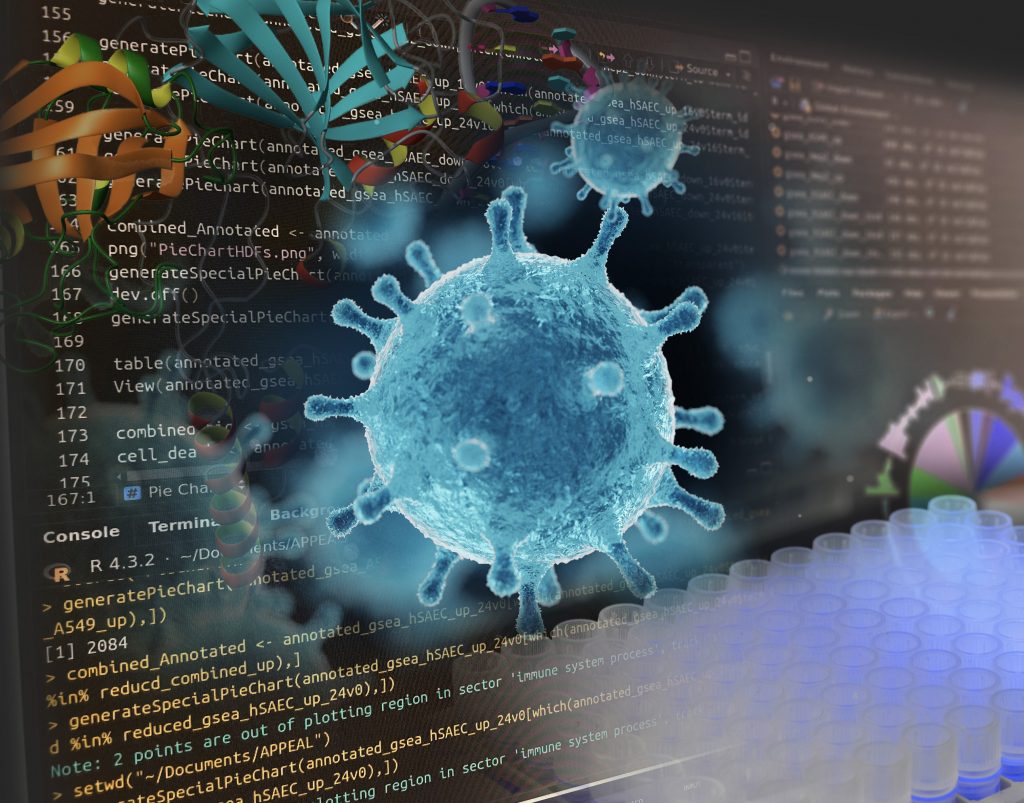09/01/2024
Starting this year, the new APPEAL (Antivirus Pandemic Preparedness EuropeAn pLatform) project has been launched to enhancing preparedness for future pandemics.
In collaboration with 12 partners from 6 countries, under Jena University Hospital leadership, this EU funded collaboration will establish a comprehensive program for the development of broad-spectrum antiviral drugs within a five year time frame ensuring drug affordability and accessibility to low income countries.
The COVID-19 pandemic has highlighted the profound impact of the emergence of dangerous viruses. While the World Health Organization identifies Ebola, Lassa, and Zika viruses as pathogens that present a particularly high risk for future epidemics or pandemics, it is important to note that the Influenza virus, despite not being included in this list, has demonstrated the potential to cause significant harm on multiple occasions throughout the 20th and 21st centuries.
Vaccinations and antiviral drugs are fundamental components of global pandemic preparedness, playing a crucial role in preventing and mitigating the impact of infectious diseases. However, these measures require continuous adaptation due to the genetic variability of viruses. This is a costly and time delayed burden for each outbreak. To mitigate this, the APPEAL project will focus on identifying and targeting less variable mechanisms within infected cells that are essential for viral replication, as well as the immune processes through which host cells defend against viral infections.
The consortium is prioritising the identification of antiviral agents that target host cell proteins. This approach significantly reduces the risk of resistance development and enhancing the long-term effectiveness of the antiviral agents.
“Our research initiative aims to establish a platform for the identification of target proteins and their signalling pathways within host cells, utilising both computational and experimental approaches. Subsequently, potential drug candidates will undergo comprehensive testing in our laboratories, including cell culture and human-relevant 3D models. The most promising candidates will then advance to animal studies, and ultimately, validation in a clinical pilot study,” describes Prof. Dr. Rainer König. He coordinates the project, which is funded by the EU with a participation of Great Britain by a total budget of 8.1 million Euro.
Professor Rainer König then further describes, “Our research initiative aims to establish a comprehensive pipeline for the identification and validation of potential antiviral targets and associated drug candidates.” This will involve mining published data from high-throughput gene knockout studies with infected cells, followed by computational analyses using machine learning. Such approach aims to identify and prioritise target proteins and their associated signalling pathways within host cells. The screening of substances in drug databases and in-house libraries to inhibit the identified proteins or cellular processes essential to the viral life cycle will follow. Subsequently, experimental validation will be conducted in infected human primary cells and physiologically relevant 3D human tissue models. It will be followed by the screening of substances in drug databases and in-house libraries to inhibit the identified proteins or cellular processes essential to the viral life cycle.
In addition, the scientists also aim to therapeutically activate target proteins that are identified as enhancers of cellular defence processes. For the most promising candidate, the safety and effectiveness of the lead compound will be evaluated in pre-clinical pilot studies. “For at least one substance we aim to go through these steps in a fast track procedure, so that we are able to validate it within a clinical pilot study,” Rainer König summarises. “Our pipeline is intended to respond quickly, safely and effectively to the spread of new or re-emerging dangerous viral infections.”
The APPEAL project has received funding from the European Union’s Horizon Europe research and innovation programme under Grant Agreement No 101137311.
